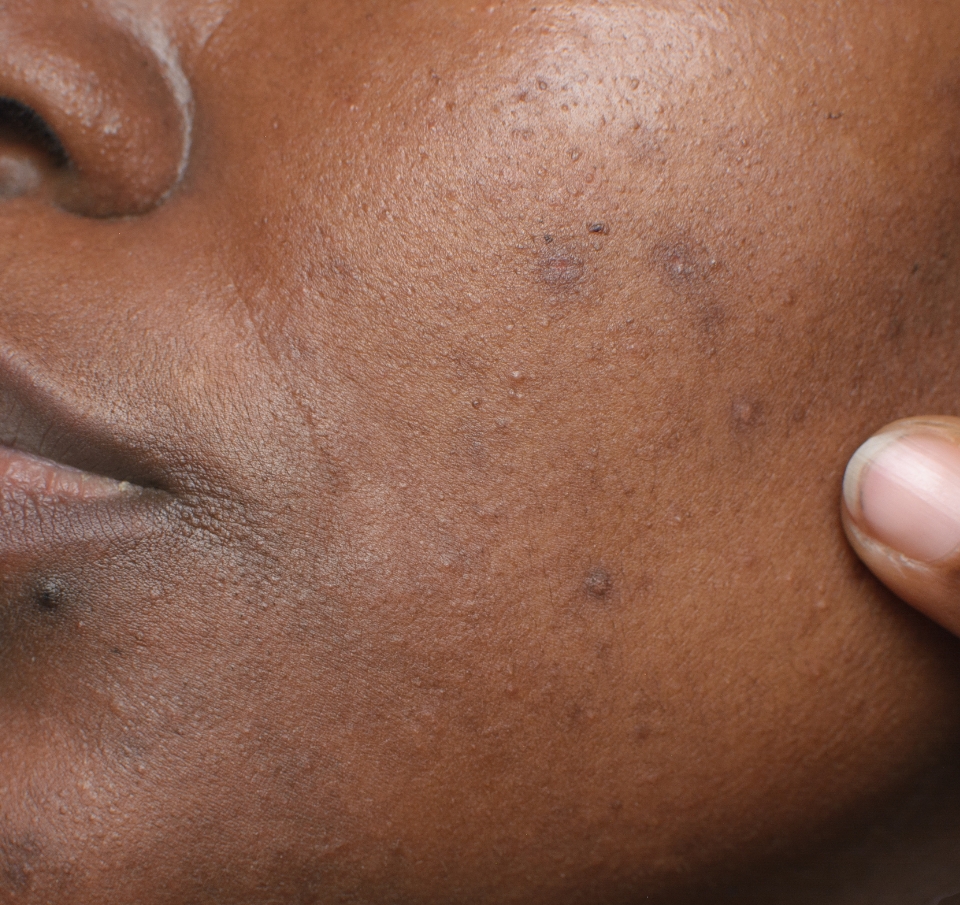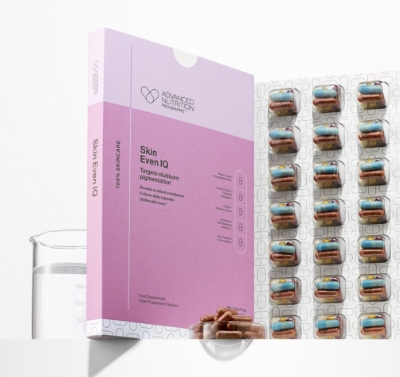How to manage pigmentation

As skin concerns go, pigmentation can be one of the most stubborn and requires a 100% skincare approach, combining supplements to feed the skin from within with a synergy of nutrients, plus, treatments and topical creams to deliver results. When trying to target stubborn pigmentation, time and dedication are key.
According to the American Academy of Dermatology, a spot that is a few shades darker than your natural skin colour, can take between 6-12 months to fade, and longer for more stubborn cases. It’s therefore important to be patient when starting your skincare journey, understanding that eventually, when using a 100% skincare approach, the results will come.
Our top tips to manage pigmentation
1. Consume key, skin-unifying ingredients
Our skin health experts recommend a synergy of scientifically studied ingredients that targets stubborn pigmentation. All these ingredients can be found in Skin Even IQ – our revolutionary supplement system designed to even skin tone, reduce the appearance of dark spots, and deliver a radiant complexion.
- Copper: 15% of body copper is found in the skin. Copper is essential for normal pigmentation of the skin and hair.
- L-cysteine: an amino acid that contributes to the normal pigmentation process.
- Licorice extract: shown to inhibit tyrosinase an enzyme that plays a key role in melanin production.
- Vitamin C: is key to support uneven skin tone and pigmentation. Vitamin C helps brighten your skin and studies show that vitamin C helps protect your skin from oxidative stress. which can cause discolouration and pigmentation[2].
- Grape seed extract and grape pomace: rich in natural compounds known for their antioxidant properties.

2. Always wear sunscreen
Prevention is better than the cure when it comes to pigmentation. The key cause of hyperpigmentation is overexposure to the sun, so our skin health experts recommend that you always protect yourself from blue light and UV rays by wearing sunscreen daily.
One big misconception is that you don’t need to wear SPF if the weather is overcast. Rays from the skin can still harm our skin through the clouds – it’s best to always apply regularly, and make sure that it offers both UVA and UVB protection.
In addition to this, it’s important to stay safe in the sun. Remember to wear a hat to protect the delicate skin on your forehead from blue light and UV rays. When the sun is highest in the sky, this is when the rays can be their most powerful, so seek shade, if possible, to avoid sun damage.
3. Eat a range of coloured vegetables.
Antioxidants can help safeguard the skin further from oxidative stress including UV exposure, blue light, and pollution, which can all contribute to pigmentation. So, to support this skin concern, its key to consume a wide variety of antioxidants in the below vegetables:
- Lycopene: a plant nutrient that gives fruits like tomatoes and grapefruit their colour. Research shows that lycopene’s antioxidant properties can help keep free radical levels at bay[3]. In addition, research shows that lycopene can offer some skin support against the damaging effects of the sun[4]. Lycopene is found in tomatoes, apricots, melons, watermelons.
- Lutein and astaxanthin: both possess antioxidant effects which can help support your skin from the sun’s damaging ultraviolet (UV) rays. Consume vegetables such as spinach, kale, broccoli, red peppers [5].
- Vitamin C: a skin-loving ingredient essential for a radiant, event, fresh complexion. Vitamin C can be found in the following foods oranges, spinach, broccoli, peas and yellow peppers [2].

4. Book a professional treatment
After assessing your diet, our skin health experts recommend visiting a skincare professional for a consultation to ensure you are getting the right treatment. A therapist will assess your skin, ask questions about your skincare regime, lifestyle and daily habits, before recommending the appropriate treatments and topical creams.
Why doesn’t pigmentation get better?
There can be many factors that can make the process of fading pigmentation challenging. In general, if you continue to expose your skin to the sun without protection, pick and squeeze spots, and you are inconsistent with your targeted supplement and skincare routine – you will struggle to see visible results.

Consistency is key, as well as patience!
Our revolutionary supplement system designed to even skin tone, reduce the appearance of dark spots, and deliver a radiant complexion.
Sources:
- How to manage hyperpigmentation in the summer? Healthline. September 14th 2022.
- The effect of Vitamin C on melanin pigmentation National Library of Medicine. Rizwan Sanadi, Revati Deshmukh. September 2020.
- Potential Role of Carotenoids as Antioxidants in Human Health and Disease. Joanna Fiedor* and Květoslava Burda. January 2014.
- The Effect of Lycopene Preexposure on UV-B-Irradiated Human Keratinocytes. National Library of Medicine. Andreia Ascenso, Tiago Pedrosa, Sónia Pinho, Francisco Pinho, José Miguel P. Ferreira de Oliveira, Helena Cabral Marques, Helena Oliveira, Sandra Simões, Conceição Santos.
- Lutein and zeaxanthin in eye and skin health. National Library of Medicine. Richard L Roberts1, Justin Green, Brandon Lewis.

